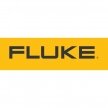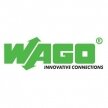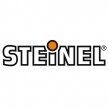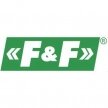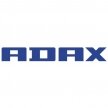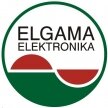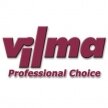-
Product Catalog
- Security and Surveillance Systems
- Automatic Circuit Breakers for Direct Current (DC) Circuits with Integrated Overload, Short-Circuit, and Voltage Stabilization Protection Functions
- Lighting with the help of electrical energy
- Automation and Control Systems
- Sealing profiles | rubber | gaskets | strips
- Inflatable Liquid Storage Tanks | Reservoirs | Bladders
- Inflatable rubber plugs for sealing high-pressure plumbing pipes
- Electrical distribution and installation
- Solar Energy Generation and Management Equipment
-
HVAC control solutions for heating and ventilation.
- HVAC automation
- Fans for ventilation systems
- Ducts and connections for ventilation | air conditioning systems
- Chimney Caps | Deflectors | for Ventilation and Chimney Systems
- Dampers for ducts | ventilation | air conditioning systems
- Duct Silencers | Ventilation | Ventilation Systems
- Air Filters for Ducts | Ventilation | Ventilation Systems
- Supply Air Ventilation Dampers
- Diffusers for Ventilation Systems
- Mobile Air Conditioners | for Indoor Climate Control
- Domestic | industrial air purification systems
- Special products and accessories
- Other products
- Safety tools
- Quality used products
Electric motors
-
Read more

Electric motors are essential mechanical devices that convert energy into motion. They are widely used in industry, commerce, and households to efficiently move, rotate, or operate various devices. Electric motors come in different sizes and types depending on their use and requirements. They ensure continuous and reliable operation, making them indispensable in manufacturing, heating, ventilation, air conditioning (HVAC) systems, and other industrial sectors.
Main features of electric motors:
Types: Electric motors come in several types, including DC (direct current), AC (alternating current), and synchronous motors. Each type is designed for specific conditions, depending on the voltage, torque, type of current, and control requirements.
AC motors: The most widely used due to their simplicity and reliability. They operate with AC power and are extensively used in industrial equipment, air conditioning systems, and other fields.
DC motors: Used where more precise speed and torque control are required. They are often employed in electric vehicles, conveyor systems, and other industries.
Synchronous motors: These motors operate synchronously with the network frequency, providing high performance and accuracy, making them ideal for highly controlled equipment.
Efficiency: Modern electric motors are designed to be as efficient as possible, leading to lower energy consumption, longer service life, and better performance. Most electric motors comply with international energy efficiency standards, such as IE2, IE3, or IE4, ensuring optimal operation with minimal losses.
Applications:
In industry: Used in various production equipment, including conveyors, presses, pumps, and fans. In many industrial sectors, they are the primary motors driving the production process. In HVAC systems: Electric motors are a key component in air circulation, conditioning, and heating equipment. They ensure the reliable operation and energy efficiency of these systems. In household appliances: Widely used in everyday household devices such as washing machines, vacuum cleaners, fans, and more.
Technical specifications:
Power: Electric motors range from a few watts to several megawatts. Depending on the application, the motor's power will determine its efficiency for a specific task. Voltage: Depending on the model, electric motors can operate at different voltage ranges, such as 230V or 400V AC, making them suitable for both household and industrial use. Torque: Torque is a crucial factor, especially for moving heavier loads. High-torque motors are used for transportation, pressing, or other heavy operations. Protection rating: Electric motors often come with dust, water, and other environmental protection ratings, such as IP55 or IP65, ensuring reliable operation under harsh conditions. Control: Many modern electric motors can be controlled using advanced control systems, allowing users to regulate speed, torque, and ensure more efficient operation and energy savings.
Advantages of using electric motors:
High efficiency: Electric motors use less energy and operate more efficiently than other mechanical motors, making them an environmentally friendly choice. Reliability: Electric motors are long-lasting and reliable, requiring minimal maintenance and able to work for extended periods without stopping. Precise control: They allow for precise control of speed, torque, and other operating parameters, which is particularly important in industrial processes. Quiet operation: Compared to other types of motors, electric motors operate quietly, which is important in residential and commercial buildings. Disadvantages:
Initial cost: While electric motors are often efficient and economical in the long term, the initial acquisition and installation costs can be high. Dependence on electricity: The operation of electric motors depends directly on electricity supply, meaning that if power is interrupted, the motor's operation ceases as well.
Applications:
Electric motors are widely used both in homes and industry:
In manufacturing equipment: Conveyors, production lines, presses. In vehicles: Electric cars, trains. In heating and ventilation systems: Fans, pumps, compressors. In household appliances: Vacuum cleaners, fans, washing machines.
Certificates and standards:
Most electric motors comply with international safety and efficiency standards, such as CE, ISO, and RoHS, ensuring their reliability and compliance with environmental regulations.
Electric motors are an indispensable part of modern industry and daily life. Properly selected motors will ensure efficient operation, energy savings, and longevity.
No items found.
US IN SOCIAL NETWORKS







